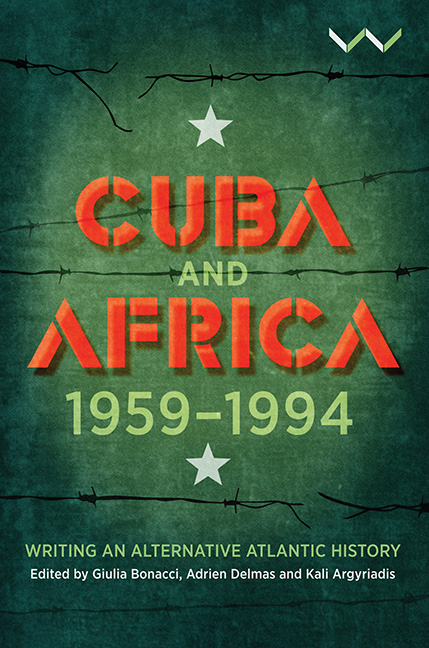Book contents
- Frontmatter
- Contents
- Figures and Table
- Foreword
- Acknowledgements
- Acronyms and Abbreviations
- Timeline of Historical Events
- Map of Africa, 1994
- Introduction Reconfiguring the Cuba–Africa Encounter
- Part I Politics and Solidarity
- Part II Trajectories
- Part III Voices
- Part IV Reconstructing History, Reconnecting Roots
- Contributors
- Index
Chapter 8 - Cultural Diplomacy in the Cold War: Musical dialogues between Cuba and West Africa, 1960–1970
Published online by Cambridge University Press: 15 June 2021
- Frontmatter
- Contents
- Figures and Table
- Foreword
- Acknowledgements
- Acronyms and Abbreviations
- Timeline of Historical Events
- Map of Africa, 1994
- Introduction Reconfiguring the Cuba–Africa Encounter
- Part I Politics and Solidarity
- Part II Trajectories
- Part III Voices
- Part IV Reconstructing History, Reconnecting Roots
- Contributors
- Index
Summary
One Saturday evening in January 2015 in Cotonou, Benin, the Malian musician Boncana Maïga arrived on the stage at the grand finale of the second Benin International Salsa Festival. After words of praise from the festival organisers to introduce their guest of honour to the audience, Maïga ceremoniously displayed the transverse flute he was about to play. He accompanied the gesture with an account explaining that this very flute was presented to him as a gift by the Cuban government during his music studies in Havana in the mid-1960s. By making the flute the symbol of his high-level musical training that led him to developing a successful international career, the Malian musician showed how much he had benefited from the cultural exchanges established between Mali and Cuba in the context of a postcolonial diplomatic rapprochement. Moreover, the eloquent gesture of showing off the flute and the accompanying words indicated not only how much this experience had shaped him as an accomplished musician but that it was also still very vivid in his memory more than fifty years later.
The intertwinement of the musician's personal journey and the political interests fostered during the Cold War era between Cuba and Mali features at the core of this chapter. It explores the political, musical and interpersonal relationships revealed by the criss-crossing of Malian and Cuban musicians across the postcolonial Atlantic. It therefore sheds light on the cultural exchanges initiated between Cuba and newly independent African countries throughout the 1960s and 1970s.
During the Cold War, numerous African countries adopted a socialist policy at their independence in the 1960s. This was the case of the Republic of Mali, which became independent from France on 22 September 1960. Such anti-imperialist positioning led to the development of privileged relationships with other socialist countries worldwide. In addition to offering an ideological and political model opposed to Western imperialism, these new economic and political partnerships also took the form of cultural exchanges. USSR, China, North Korea and Cuba became Mali's main partners in the realm of culture. The cultural exchanges consisted mainly of sending Malian students and civil servants abroad for training; building cultural infrastructure; organising cultural events; and reciprocally facilitating tours of national artistic ensembles.
- Type
- Chapter
- Information
- Cuba and Africa, 1959-1994Writing an Alternative Atlantic History, pp. 183 - 204Publisher: Wits University PressPrint publication year: 2020



